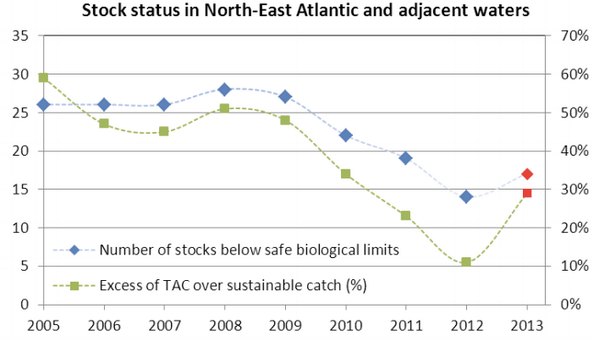 |
| Courtesy of Oceana |
Discuss
#eatmorefish
#eatmorefish
Welcome to Through the Gaps, the UK fishing industry's most comprehensive information and image resource. Newlyn is England's largest fish market and where over 50 species are regularly landed from handline, trawl, net, ring net and pot vessels including #MSC Certified #Hake, #Cornish Sardine, handlined bass, pollack and mackerel. Art work, graphics and digital fishing industry images available from stock or on commission.
LIVE! European diplomats meet in Brussels to decide Europe's 2014 fishing quotas, Karl Mathiesen, with your help, investigates whether recent reforms can create a sustainable fishing industry.
Post your views in the comments below, email karl.mathiesen.freelance@guardian.co.uk or tweet @karlmathiesen
11.35am GMT Scientific reaction
Callum Roberts is a marine conservation biologist at the University of York. He tells me that while many aspects of the reformed CFP look good on paper, there are significant challenges for the implementation and policing of the new regime.
He also says that many species will not benefit from simply reducing catch limits. Without marine protected areas, many species will not have safe breeding grounds and zones from which they can replenish their populations. MPAs are not mandatory under the CFP.
Roberts also says that countries are in fact not tied to scientific advice. I have contacted him for more detail on this because he seems to differ from the assessment of Liane Veitch from Client Earth.
 |
| Both boys got a heroes welcome after demolishing Wales in this years Under 20s Rugby World Cup - Jack Nowell (R) with proud parents Louisa and Michael Nowell |